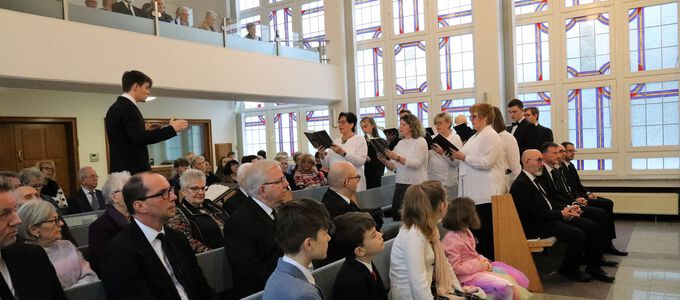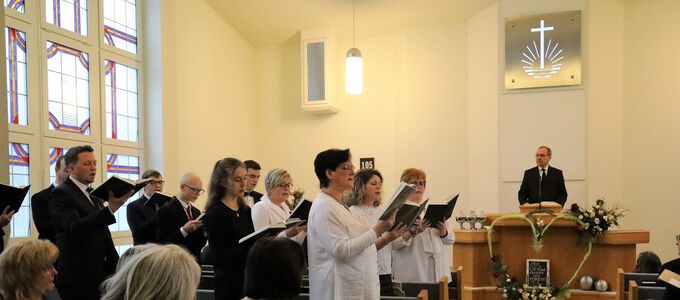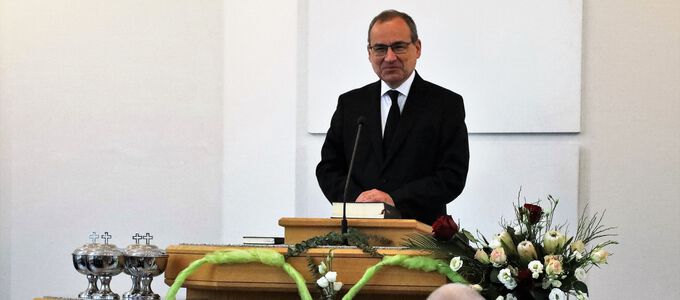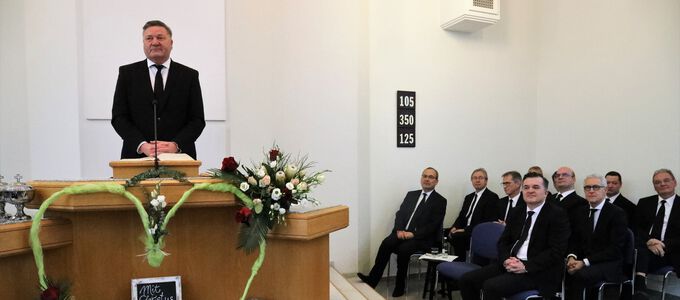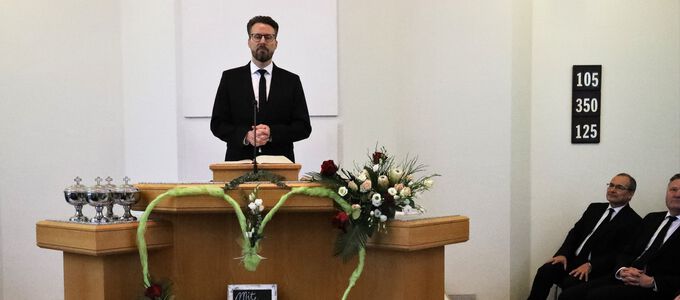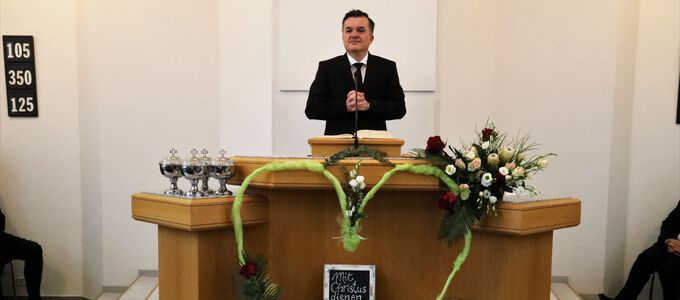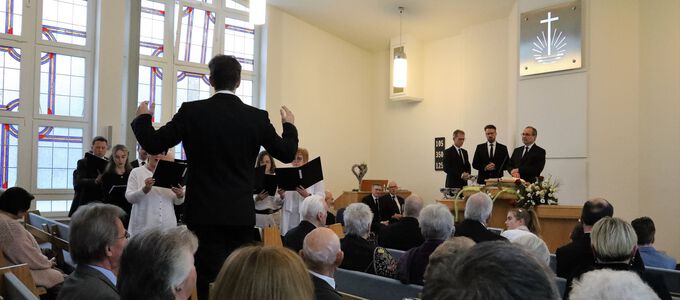There is bread unlimited when Jesus waits on us
A handful of meals, a dozen tired men, and tens of thousands of hungry mouths to feed—these are the ingredients for a telling miracle: this is a story about talking and acting, sharing and distributing, and believing and loving.
“And when He had taken the five loaves and the two fish, He looked up to heaven, blessed and broke the loaves, and gave them to His disciples to set before them; and the two fish He divided among them all.” Chief Apostle Jean-Luc Schneider used Mark 6: 41 as basis for his sermon in Wuppertal, Germany, on 22 January 2023.
“We are going to focus on the miraculous feeding of the five thousand,” he said. “The fact that all the gospels report on this shows us that this was a very important event in Jesus’ life, a very important sign.” The Chief Apostle went on to explain this in two separate lessons, as it were.
Jesus’ part in it
“First, this was a clear sign to the Jews that Jesus was a great prophet.” Greater, in any case, than Elijah or Elisha. The first provided food for a widow, the second fed a hundred men. The miracle of Jesus affected tens of thousands of people, namely four to five thousand men plus women and children.
“Jesus wanted to show that He had not just come to preach but to do something for them: I know what you need and will help you.” And indeed: “God, through Jesus Christ, not only told us what has to be done to be redeemed, He actually contributed the greatest part to it: He brought the sacrifice.”
By giving bread to the people, Jesus had shown: “I am not just a prophet or a preacher, I am God. I bring you the manna that no one else can offer you: namely eternal life.
After all, you don’t live by what you eat but by what you digest. This is how it works with the word of God too. We do not receive eternal life through the words we hear. We actually have to eat and digest the word, that is, we have to take possession of it so that it triggers something within us.
Jesus gave bread to all the people, and they all ate and were satisfied, and still there were twelve baskets of leftovers. Jesus also wanted to show that He forgets no one, that there is enough left for all human beings. He did not only come for the people of Israel. He did not only come for His contemporaries.
The disciples’ part
Jesus could have done this alone, but He commissioned the disciples whom He had called shortly before. “He wanted to show: you have not been chosen to simply be saved, but you have been called to serve,” the Chief made clear. “We too have been chosen to serve,” he said.
The Lord asked the disciples to share the food they had brought for themselves. Jesus Christ wanted to illustrate that their serving was to be characterised by sharing with others. And that is still the case today: “I have given you everything you need; all you have to do is share it properly, and then the problem is solved.”
“Jesus had not created new bread,” the Chief Apostle said. And that means: “The Lord Jesus does not need to invent something new: His Word and His way to salvation are valid for all human beings; there is no adaptation required. It is the same gospel. Share what you have received. The bread is intended for all and helps all.”
Before distributing it, the disciples had to give their loaves of bread to the Lord. “The bread comes from Jesus Christ.” The idea, the Chief Apostle said, is not for us to preach about ourselves—about our own lives, our own experiences, or insights. “We are to preach the gospel of Jesus Christ,” the Chief Apostle said.
The bread was not multiplied all at once: “The disciples had to believe that the whole thing made sense. They started handing out the bread, and as they did the miracle gradually unfolded. I sometimes wish we still had this kind of faith! Just do it! Everything else is up to the Lord.”
The Apostles had been busy before and had worked hard and were tired. And it was precisely then that Jesus asked them to make this special effort on top. “But the disciples already felt love for their neighbour: they knew that the people were hungry and just did it. The love of the disciples was also important in this case.”
One last point: Jesus told the disciples to make the people sit down in groups on the green grass, in groups of hundreds and fifties. “In my opinion,” the Chief Apostle said, “this is a gentle hint pointing to the structure of the church. Yes, Jesus Christ offers salvation, but not just like that. Salvation is offered by Him in His church and in the congregation.”
Article info
Author:
Date:
Keywords:
Andreas Rother
15.03.2023
Chief Apostle,
Divine service,
motto,
Serving and reigning with Christ


